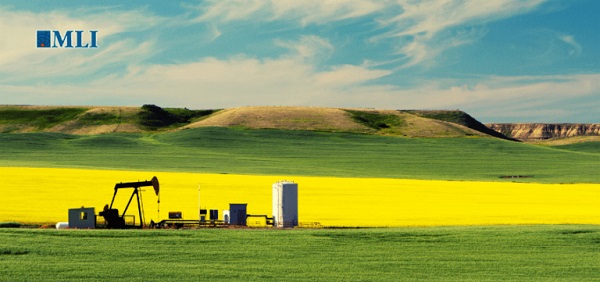Uncategorized
G-7 ministers reveal ‘clear differences’ on Middle East as France meeting wraps

DINARD, France — Foreign ministers from the Group of Seven nations revealed stark divergences in views on the Middle East on Saturday as they wrapped up a meeting in France that opened with the goal of finding common ground on contentious global challenges but was shaken by the absence of U.S. Secretary of State Mike Pompeo.
The diplomats in attendance projected a united front while walking side-by-side along a seaside promenade before they released the agreement from their two-day meeting in Dinard. The agreement included mildly worded joint commitments on issues such as fighting cybercrime, giving women bigger peacemaking roles, and engaging with countries in Africa’s Sahel region to combat migrant trafficking.
But what was omitted from the G-7’s positions said as much as what was included. The differences could set the stage for tensions at an August summit of the leaders of the G-7 advanced economies — the United States, France, Canada, Japan, Germany, Italy and the U.K.
A European Union official expressed “regret” the document had what she considered to be several glaring omissions that conflicted with non-negotiable positions of the EU. They included “no reference to a two-state solution” in the Israeli-Palestinian conflict and “no mention” of the U.N. Security Council resolution in
The official, who spoke on condition of anonymity because she was not allowed to speak to the news media, said the language used to described the G-7’s deep concern over Iran’s “continuing support for terrorist organizations and armed militias” was not language EU members tend to use. Four of the G-7 nations are in the European Union.
The foreign ministers’ joint statement itself acknowledged “clear differences” on the Israeli-Palestinian conflict after “an exchange of views.”
The agreement included an initiative to help countries share best practices on encouraging responsible online
Discord is becoming a theme for the group.
Last June, U.S. President Donald Trump roiled the G-7 meeting in Charlevoix, Que., by first agreeing to a group statement on trade, then withdrawing support from it and sending a string of negative tweets about the summit and its host, Prime Minister Justin Trudeau.
On Saturday in Dinard, Foreign Affairs Minister Chrystia Freeland tweeted a photo of herself and her counterparts from Germany, France and Japan.
“Many of today’s greatest challenges are global and they can only be solved when we work together. That is why Canada stands united with its German, French, and Japanese friends,” Freeland wrote, adding the hashtag #AllianceofMultilaterists.
British Foreign Secretary Jeremy Hunt was also missing from the final group photo after attending Friday’s session. This, combined with Pompeo’s absence, raised questions about the G-7’s relevance.
U.S. officials acknowledged points of discord at the talks hosted by French Foreign Minister Jean-Yves Le Drain.
U.S. Deputy Secretary of State John J. Sullivan, who went in Pompeo’s stead, said Washington would use the G-7 forum to galvanize support for Venezuela’s opposition leader, Juan Guaido, whose claim to the presidency is backed by the U.S. and about 50 other countries.
But the meeting failed to change the position of Italy, the sole G-7 member state not to back Guaido.
“We spoke about it. The Italian position on Venezuela is pretty clear,” said Italian Foreign Minister Enzo Moavero. “It is an extremely difficult situation, especially in light of the humanitarian emergency that weighs the most in our hearts.”
Guaido has set out to topple the socialist administration of President Nicolas Maduro amid deepening unrest in the country, which has been plagued by nearly a month of power outages.
Italy also has irked EU and U.S. allies by becoming the first G-7 member to sign up to a Chinese plan to build a Silk Road-style global trade network, the Belt and Road Initiative.
Any reference to the contentious trillion-dollar plan was missing in Saturday’s texts.
___
Trisha Thomas and Masha Macpherson contributed to this report.
Thomas Adamson, The Associated Press
Uncategorized
Poilievre on 2025 Election Interference – Carney sill hasn’t fired Liberal MP in Chinese election interference scandal

From Conservative Party Communications
“Yes. He must be disqualified. I find it incredible that Mark Carney would allow someone to run for his party that called for a Canadian citizen to be handed over to a foreign government on a bounty, a foreign government that would almost certainly execute that Canadian citizen.
“Think about that for a second. We have a Liberal MP saying that a Canadian citizen should be handed over to a foreign dictatorship to get a bounty so that that citizen could be murdered. And Mark Carney says he should stay on as a candidate. What does that say about whether Mark Carney would protect Canadians?
“Mark Carney is deeply conflicted. Just in November, he went to Beijing and secured a quarter-billion-dollar loan for his company from a state-owned Chinese bank. He’s deeply compromised, and he will never stand up for Canada against any foreign regime. It is another reason why Mr. Carney must show us all his assets, all the money he owes, all the money that his companies owe to foreign hostile regimes. And this story might not be entirely the story of the bounty, and a Liberal MP calling for a Canadian to be handed over for execution to a foreign government might not be something that the everyday Canadian can relate to because it’s so outrageous. But I ask you this, if Mark Carney would allow his Liberal MP to make a comment like this, when would he ever protect Canada or Canadians against foreign hostility?
“He has never put Canada first, and that’s why we cannot have a fourth Liberal term. After the Lost Liberal Decade, our country is a playground for foreign interference. Our economy is weaker than ever before. Our people more divided. We need a change to put Canada first with a new government that will stand up for the security and economy of our citizens and take back control of our destiny. Let’s bring it home.”
Uncategorized
Canada Needs A Real Plan To Compete Globally

From the Frontier Centre for Public Policy
Ottawa’s ideological policies have left Canada vulnerable. Strategic action is needed now
As Canada navigates an increasingly complex geopolitical landscape, the next federal government must move beyond reflexive anti—Americanism regardless of its political leanings. Instead, Canada should prioritize national interests while avoiding unnecessary conflict and subservience.
The notion that Canada can stand alone is as misguided as the idea that it is only an economic appendage of the United States. Both perspectives have influenced policy in Ottawa at different times, leading to mistakes.
Rather than engaging in futile name-calling or trade disputes, Canada must take strategic steps to reinforce its autonomy. This approach requires a pragmatic view rooted in Realpolitik—recognizing global realities, mitigating risks, governing for the whole country, and seizing opportunities while abandoning failed ideologies.
However, if Washington continues to pursue protectionist measures, Canada must find effective ways to counteract the weakened position Ottawa has placed the country in over the past decade.
One key strategy is diversifying trade relationships, notably by expanding economic ties with emerging markets such as India and Southeast Asia. This will require repairing Canada’s strained relationship with India and regaining political respect in China.
Unlike past Liberal trade missions, which often prioritized ideological talking points over substance, Canada must negotiate deals that protect domestic industries rather than turning summits into platforms for moral posturing.
A more effective approach would be strengthening partnerships with countries that value Canadian resources instead of vilifying them under misguided environmental policies. Expand LNG exports to Europe and Asia and leverage Canada’s critical minerals sector to establish reciprocal supply chains with non-Western economies, reducing economic reliance on the U.S.
Decades of complacency have left Canada vulnerable to American influence over its resource sector. Foreign-funded environmental groups have weakened domestic energy production, handing U.S. industries a strategic advantage. Ottawa must counter this by ensuring Canadian energy is developed at home rather than allowing suppressed domestic production to benefit foreign competitors.
Likewise, a robust industrial policy—prioritizing mining, manufacturing, and agricultural resilience—could reduce dependence on U.S. and Chinese imports. This does not mean adopting European-style subsidies but rather eliminating excessive regulations that make Canadian businesses uncompetitive, including costly domestic carbon tariffs.
Another key vulnerability is Canada’s growing military dependence on the U.S. through NORAD and NATO. While alliances are essential, decades of underfunding and neglect have turned the Canadian Armed Forces into little more than a symbolic force. Canada must learn self-reliance and commit to serious investment in defence.
Increasing defence spending—not to meet NATO targets but to build deterrence—is essential. Ottawa must reform its outdated procurement processes and develop a domestic defence manufacturing base, reducing reliance on foreign arms deals.
Canada’s vast Arctic is also at risk. Without continued investment in northern sovereignty, Ottawa may find itself locked out of its own backyard by more assertive global powers.
For too long, Canada has relied on an economic model that prioritizes federal redistribution over wealth creation and productivity. A competitive tax regime—one that attracts investment instead of punishing success—is essential.
A capital gains tax hike might satisfy activists in Toronto, but it does little to attract investments and encourage economic growth. Likewise, Ottawa must abandon ideological green policies that threaten agri-food production, whether by overregulating farmers or ranchers. At the same time, it must address inefficiencies in supply management once and for all. Canada must be able to feed a growing world without unnecessary bureaucratic obstacles.
Ottawa must also create an environment where businesses can innovate and grow without excessive regulatory burdens. This includes eliminating interprovincial trade barriers that stifle commerce.
Similarly, Canada’s tech sector, long hindered by predatory regulations, should be freed from excessive government interference. Instead of suffocating innovation with compliance mandates, Ottawa should focus on deregulation while implementing stronger security measures for foreign tech firms operating in Canada.
Perhaps Ottawa’s greatest mistake is its knee-jerk reactions to American policies, made without a coherent long-term strategy. Performative trade disputes with Washington and symbolic grandstanding in multilateral organizations do little to advance Canada’s interests.
Instead of reacting emotionally, Canada must take proactive steps to secure its economic, resource, and defence future. That is the role of a responsible government.
History’s best strategists understood that one should never fight an opponent’s war but instead dictate the terms of engagement. Canada’s future does not depend on reacting to Washington’s policies—these are calculated strategies, not whims. Instead, Canada’s success will be determined by its ability to act in the interests of citizens in all regions of the country, and seeing the world as it is rather than how ideological narratives wish it to be.
Marco Navarro-Génie is the vice president of research at the Frontier Centre for Public Policy. With Barry Cooper, he is co-author of Canada’s COVID: The Story of a Pandemic Moral Panic (2023).
-

 Energy2 days ago
Energy2 days agoWhy are Western Canadian oil prices so strong?
-

 2025 Federal Election22 hours ago
2025 Federal Election22 hours agoWEF video shows Mark Carney pushing financial ‘revolution’ based on ‘net zero’ goals
-

 Crime2 days ago
Crime2 days agoFirst Good Battlefield News From Trump’s Global War on Fentanyl
-

 Break The Needle1 day ago
Break The Needle1 day agoWhy psychedelic therapy is stuck in the waiting room
-

 2025 Federal Election1 day ago
2025 Federal Election1 day agoThree cheers for Poilievre’s alcohol tax cut
-

 2025 Federal Election1 day ago
2025 Federal Election1 day agoMORE OF THE SAME: Mark Carney Admits He Will Not Repeal the Liberal’s Bill C-69 – The ‘No Pipelines’ Bill
-

 Business2 days ago
Business2 days agoSaskatchewan becomes first Canadian province to fully eliminate carbon tax
-

 2025 Federal Election1 day ago
2025 Federal Election1 day ago‘Coordinated and Alarming’: Allegations of Chinese Voter Suppression in 2021 Race That Flipped Toronto Riding to Liberals and Paul Chiang








